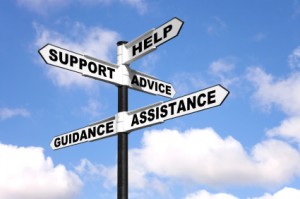The teenage years are a period of significant change. Most teenagers feel confused and sad. Sometimes you may feel that no one cares about you. If these feelings become so intense that you can’t handle them, you may be suffering from depression. This medical condition is characterized by low moods that last for at least two weeks. Clinical depression affects three to five percent of all children and teens.
Statistics show that one fifth of teenagers will experience at least one major depressive episode before graduating high school. Adolescent depression is a serious problem that leads to discouragement, sadness, and loss of self esteem.
The first step in treating this disorder is to learn about its symptoms and talk about it. This health condition can destroy the very essence of a teenager’s personality, causing restless, irritation, and thoughts of death or suicide.
Causes and Risk Factors of Teenage Depression
Adolescent depression can affect any teenager, but there are certain factors that increase the risk of developing this condition. Scientists believe that depression in teenagers is caused by a combination of genetic, psychological, and environmental factors such as:
• A family history of depression
• The influence of sex hormones
• The death of a friend or relative
• Stressful life events
• Certain types of personalities
• Gender
• A history of substance abuse
• Past physical, sexual, or emotional abuse
• Serious illnesses
• Personal conflicts
• Poverty or homelessness
• Parents separating or divorcing
Studies indicate that teenagers who smoke face a higher risk of developing depression. If you suffer from thyroid disease, insomnia, or chronic medical conditions, you are more likely to develop depression.
Statistics show that 20 to 50 percent of teenagers who suffer from this condition have a family history of depression. Parental depression also increases the risk of alcohol dependence and anxiety disorders.
Teens who are very critical of themselves or have low self esteem are most likely to become depressed. Bullying or harassment at school, long term illnesses, and poor parenting are some of the main risk factors for depression. Many teenagers with depression may also suffer from bipolar disorder, attention deficit hyperactivity disorder, bulimia, anorexia, or anxiety disorders. Drugs may lead to depression as well.
Symptoms of Teenage Depression
Teenage depression is difficult to diagnose because they can be similar to things that adolescents go through as a normal part of growing up. For some depressed teenagers, symptoms of aggression, rage, and irritability are more prominent.
Most adolescents experience at least some of the following common symptoms:
• Sadness or hopelessness
• Difficulty concentrating and making decisions
• Fatigue or lack of energy
• Episodes of memory loss
• Thinking about suicide or death
• Changes in eating and/or sleeping patterns
• Extreme sensitivity to criticism
• Feelings of inadequacy and guilt
• Tearfulness and extreme moodiness
• Low self-esteem
• Apathy
• Trouble sleeping or daytime sleepiness
• Unexplained aches and pains
• Irresponsible behavior
• Criminal behavior
• Rebellious behavior
• Withdrawal from friends
• Poor school performance
• Sudden drop in grades
• Substance abuse
• Lack of communication with others
• Decreased interest in activities
If these symptoms last for more than two weeks, you should seek immediate treatment. Many unhealthy behaviors in teenagers are actually signs of depression. Teen who are depressed run away from home or become violent. Some of them use alcohol or drugs to forget about their everyday problems. They may also have problems at school, including poor attendance or frustration with schoolwork.
Depressed adolescents may engage in dangerous behaviors such as unsafe sex and reckless driving. Adolescent depression is associated with other mental health problems, including self-injury and eating disorders. Teens with depression will have a noticeable change in their thinking and behavior.
Suicide Warning Signs in Depressed Teens
Teenagers with depression often think or speak about suicide. Statistics show that suicide is the third-leading cause of death in people ages 15 to 24. Other factors that increase the risk of suicide include teen pregnancy, anxiety disorders, and physical, mental or sexual abuse. Homosexual teens have higher suicide rates.
Warning signs of suicide in teenagers include sudden cheerfulness after depression, difficulty functioning at home or at school, and saying goodbye to friends and family as if for good. Research indicates that four out of five suicide attempts been preceded by warning signs such as:
• Changes in appearance
• Difficulty getting along with others
• Having a history of previous suicide attempts
• Not tolerating praise or rewards
• Giving away prized possessions
• Self-harming behavior
• Writing poems and essays that refer to death
• Suicide threats, direct and indirect
• Eating too much or too little
• Talking about wanting to go away
• Trying to access pills or guns
Over 80 percent of teenagers who commit suicide have told someone they intended to kill themselves. Breaking up with a girlfriend or boyfriend or losing an important person may trigger suicide. Since 75 percent of teenagers who commit suicide are depressed, it is essential to treat the first symptoms of depression as soon as possible.
If a friend or loved one shows signs of depression and talks of suicide GET HELP IMMEDIATELY. If you are a teenager worried about a friend, encourage him or her to get help and tell and adult you trust. Talk of suicide should be taken very seriously. It is important that you tell an adult and get help for your friend. Do NOT try to handle it on your own.
If you are thinking of suicide talk to an adult you can trust and/or call the suicide hotline at 1-800-273-TALK. A trained counselor is available to talk with you 24 hours a day. Visit our depression hotline page for information on what to expect when you call.
How to Help a Depressed Teen
 You may be able to help a depressed teenager if you listen and encourage him to talk. He may be afraid of being misunderstood. Don’t give up if he shuts you out at first. Let him know that you are there for him unconditionally. Listen without lecturing. Tell him that there is always another solution, even if you can’t see it right now.
You may be able to help a depressed teenager if you listen and encourage him to talk. He may be afraid of being misunderstood. Don’t give up if he shuts you out at first. Let him know that you are there for him unconditionally. Listen without lecturing. Tell him that there is always another solution, even if you can’t see it right now.
Teenage depression is associated with a high risk of suicide, so it is important to seek medical help if your teen is depressed, hide firearms and medications. Make sure he knows that you want to understand how he feels. As a parent, analyze your teen carefully to determine whether he or she is suffering from depression or temporary sadness.
Risks of Untreated Teenage Depression
Depressed teenagers may develop behavior problems at home, social issues, and drug abuse. They can also become violent and hurt others. If left untreated, teenage depression can ruin relationships and increase the chance of risky behaviors. It may result in feelings of hopelessness, insomnia, and alcohol abuse.
Treatment
Some teens are able to use self-help options to fight depression but some teens may have a form of depression that requires professional help.
The most common treatment options for teenage depression include psychotherapy, antidepressants, or a combination of the two. Psychotherapy also called talk therapy aims to help the patient develop good coping strategies to help manage and deal with everyday problems. This form of treatment focuses on the internal dialogue that takes place within a person’s mind. Therapy is an active collaboration between client and therapist.
In addition to psychotherapy, there are several medications that can help in treating depression. Most doctors recommend selective serotonin reuptake inhibitors such as Fluoxetine, Citalopram, Sertraline, and Paroxetine. Once started, treatment with these drugs should not be abruptly stopped. Research indicates that antidepressants and cognitive-behavioral therapy combined produced the best success rate in treating teenage depression. Teenage girls with depression benefit greatly from talk therapy.
The best thing you can do for a teenager who suffers from depression is to help him deal with his feelings and fight negative thoughts. Encourage him to exercise more and make new friends. If you are the parent of a depressed teenager you should stay involved in treatment and remember that your teen is not being difficult on purpose.
Related Posts
Signs of Depression in Teenage Girls
How to Get Over Depression – A Guide for Teenagers
How to Help Someone with Depression




